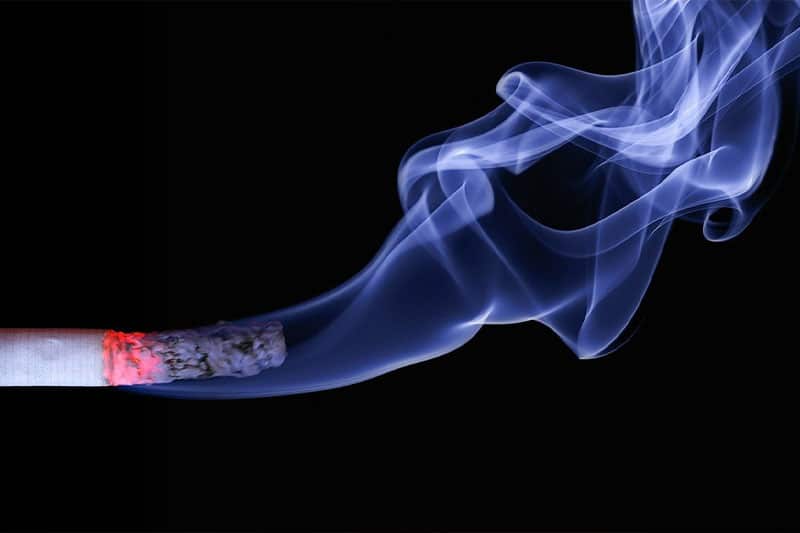
Smoking: Its effects on the body
You don’t have to have been smoking for a long time for tobacco to affect the way you look…
- SKIN
The poisons in tobacco reduce the amount of oxygen getting to the skin. This makes it look grey and dull, and can also cause cellulite to build up. - TEETH AND TONGUE
Tobacco stain teeth yellow and can make breath very smelly because of bacteria that collects on the tongue, It also causes problems with the gums, resulting in rotten teeth or even tooth loss. - MOUTH AND EYES
Smoking makes a person look old because it causes the skin around the mouth and eyes to wrinkle. It can also increase the risk of developing vision problems such as macular degeneration. - FINGERS
Just like the teeth, tobacco stains fingers and nails as well as making them smell.
Tobacco affects nearly every part of the body, damaging some of our most important organs.
- BRAIN
Smokers are more likely to have a stroke than someone who doesn’t smoke, This can cause brain damage or death. - MOUTH AND THROAT
There is an increased risk of cancer of the lips, tongue, throat, and voice box. - HEART
Carbon monoxide from smoke reduces the amount of oxygen in the blood. Nicotine also makes the heart work faster, increasing the risk of heart disease and heart attacks. - CIRCULATION
When toxins from tobacco enter the bloodstream, it reduces the amount of oxygen getting to the organs. This can increase the chance of blood clots. - LUNGS
Smoking can cause chronic obstructive pulmonary disease COPD) which is the name for a collection of different lung conditions such as bronchitis and emphysema, This results in symptoms such as breathlessness and persistent cough. Smoking can also cause lung cancer. - STOMACH
Smoking weakens the muscles in the stomach so acid and other stomach contents can travel back up the oesophagus known as reflux. Smoking can also cause painful stomach ulcers. - EXERCISING
If you smoke or you’re around other people who ore smoking (known as second-hand smoke) our lung capacity decreases so you may find it more difficult to breathe during exercise. When carbon monoxide from tobacco enters the bloodstream less oxygen reaches the muscles which are vital for exercising. - EFFECTS OF NICOTINE
If you smoke a cigarette or use another tobacco product, the nicotine in tobacco reaches your brain in around ten seconds. The first ‘hit’ of nicotine will make you feel relaxed and reduces levels of stress. This is why so many people use smoking to cope with demanding situations. This response is only temporary os regular smoking changes the way the brain responds to nicotine. As soon as you stop smoking, you will experience withdrawal symptoms. When you start smoking again, the withdrawal symptoms reduce and you become addicted to smoking.Nicotine in tobacco makes the brain release a chemical called dopamine, which makes us feel happy. People with depression have low amounts of dopamine, so they feel the need to smoke to increase the levels in their body. It is because of this that people with mental health problems have higher dependency on smoking and find it very difficult to quit. It is very common for people with mental health problems such as depression or schizophrenia to smoke.
Find more Healthy Habits Resources:
Healthy Habits: Have you had your five a day?
Did you know 1 in 4 adults and 1 in 10 children experience mental illness, and many more of us know and care for people who do? For all of us to remain healthy and resilient it is good for us to set ourselves daily goals. These can be as big or as small as you can...
Drugs: Types of drugs and the effects they have
Drugs can affect your body, your mental health, and your relationships with others. __ DRUG TYPES: Drugs can typically be categorised into these four types; all behave differently in the body and produce different effects. HALLUCINOGENS STIMULANTS DEPRESSANTS OPIATES....
Alcohol: Socialising and studying under the influence
People rely on alcohol to have a good time or believe that they need it to feel more confident in social situations. They may feel like alcohol makes them feel happy but alcohol is a depressant drug. This meons that you may react differently to situations ond your...
Alcohol: Its effects on the body
Alcohol affects nearly every part of the body and can damage some of our most important organs. __ BRAIN Impacts on mood and mental well being. Effects judgement and increases risk-taking behavior Effects long and short term memory. HEART Strains the heart and causes...
Alcohol: The effects of binge drinking
Binge drinking can be very dangerous and some of the risks include: COORDINATION Drinking a lot of alcohol can affect balance, increasing the risk of having an accident. Alcohol affects how you feel pain, so you may not realise that you have been seriously injured....
YMCA NORTH TYNESIDE would like to thank the following for their support:









